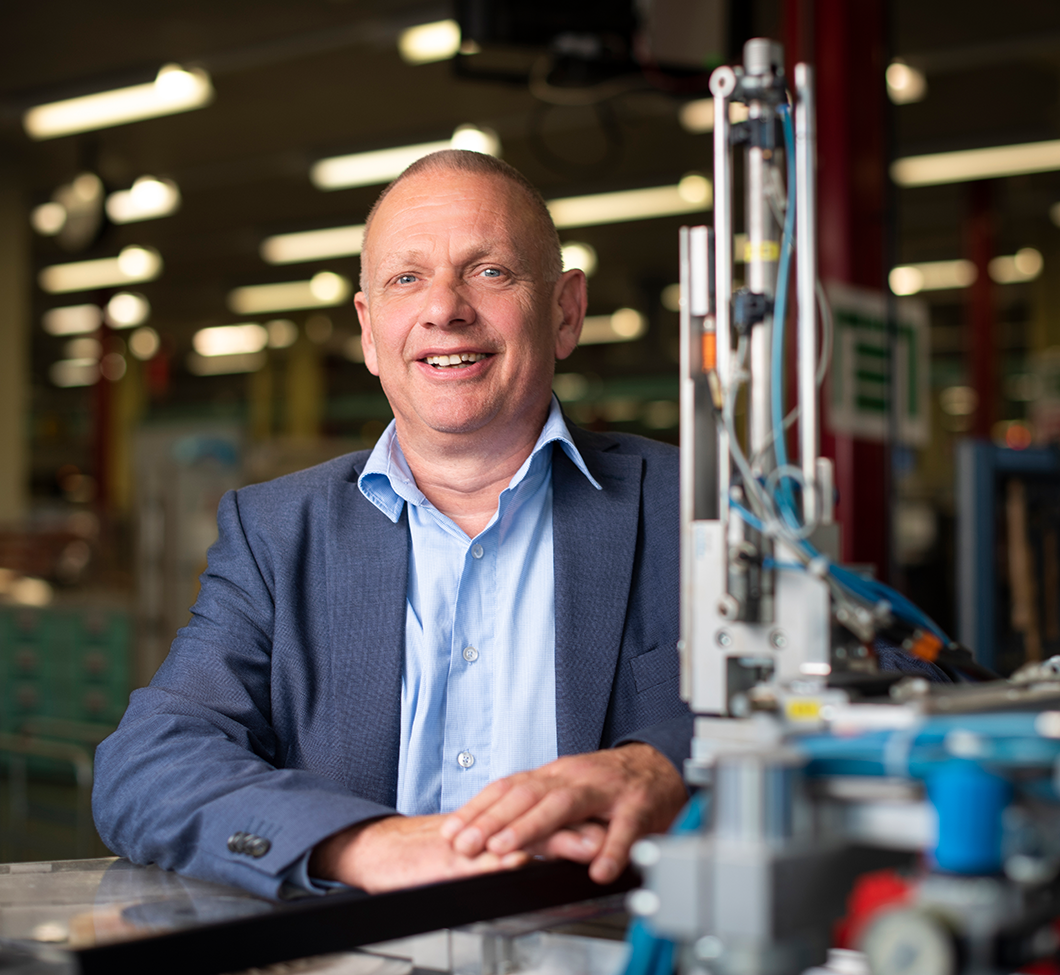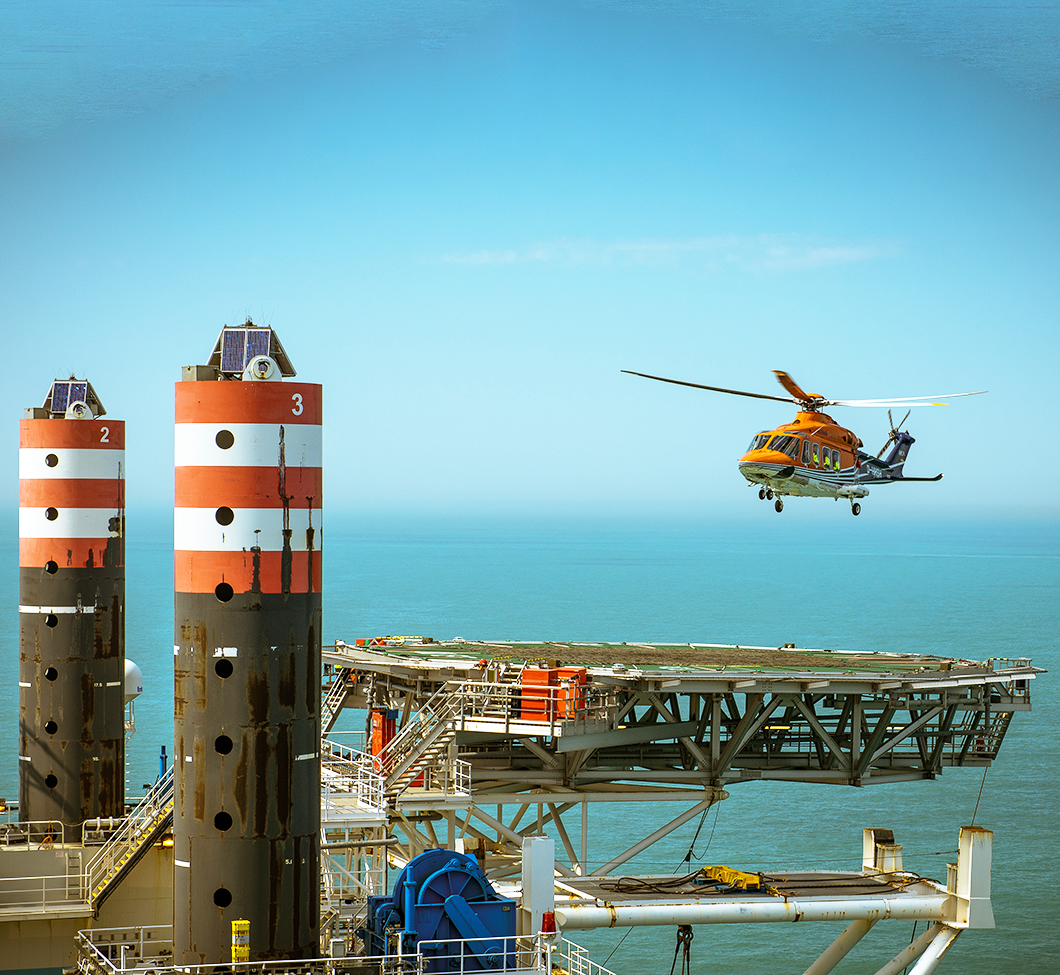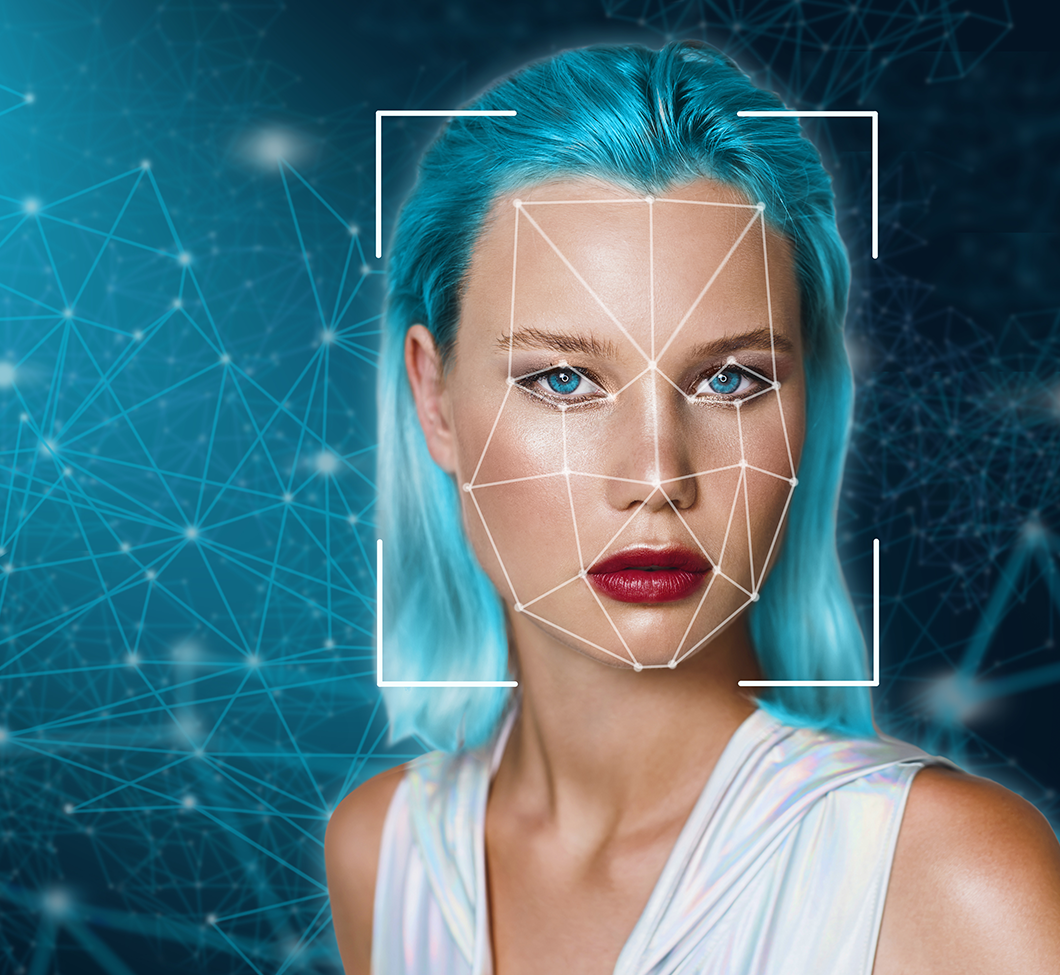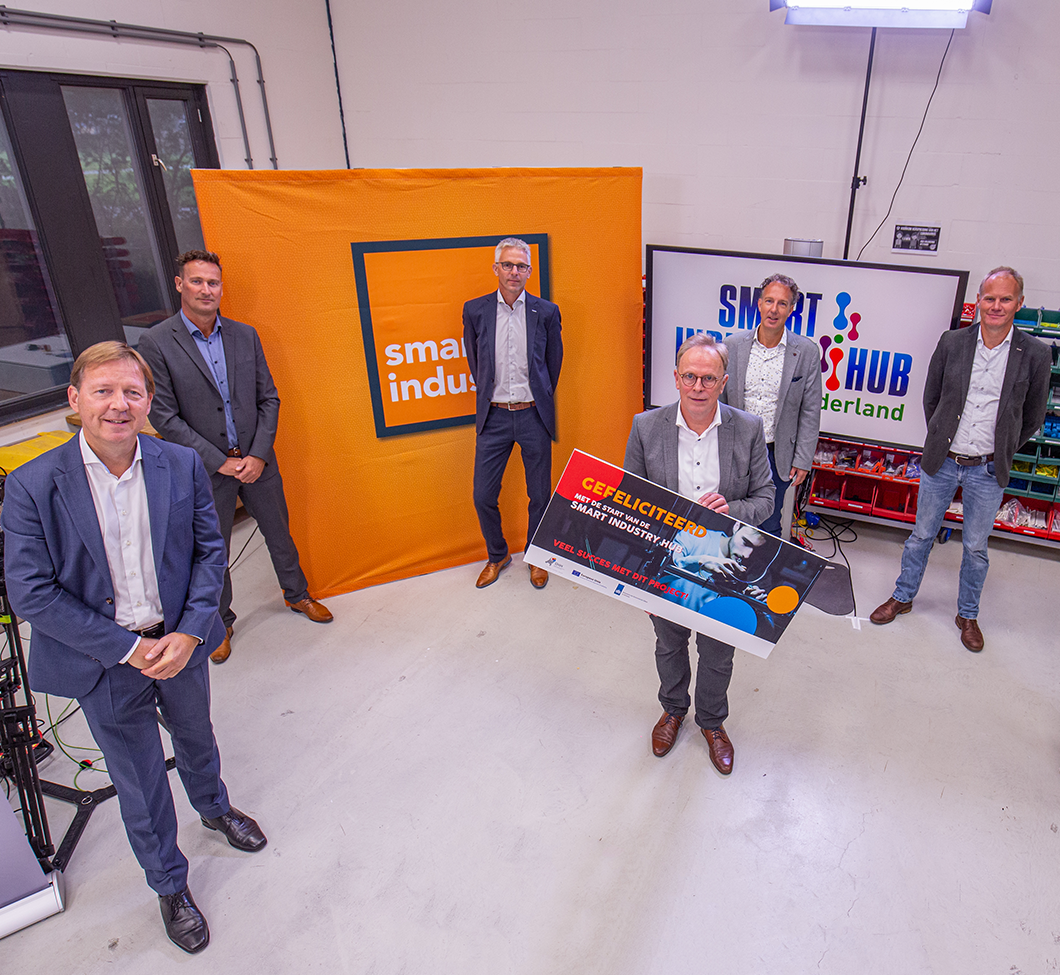AI is a brick. Now we decide to build a home or smash a window

Are AI robots going to take over the world? No fear, says Prof. dr.ir Jan Post. He’s got a nice metaphor to illustrate the future of AI (artificial intelligence) and settle the worries of the sci-fi enthusiasts. ‘For years, we’ve been working on designing a strong brick. Now it’s here, we can build houses with it or throw it through the window…but it’s the human who makes that decision.’
The point he’s making is that it’s the same with AI. We can make computers – in and in robots – as smart as we want, but they’re not going to dominate us. It’s a great metaphor, but the concerning issue is that a computer or robot can make their own decisions, and a brick cannot. In reality, it boils down to the code. If a robot is making automated bad decisions, it is we humans that are breaking our own windows.
AI COALITION NORTHERN NETHERLANDS
Post is AI Quartermaster
Jan Post is a jack of all smart-trades. He is a professor of Digital Fabrication and the University of Groningen, Director of Strategic Partnerships at Phillips Consumer Lifestyle, and project owner for the Dutch High-Tech Systems and Materials Smart Industry roadmap. His latest role is that of Quartermaster for the AI-Hub Northern Netherlands, the regional division of the Netherlands’ AI Coalition. The role of this network is to bring together companies, knowledge institutions and government from the TopDutch region, to build a powerful force for the development and application of artificial intelligence. That means strengthening the relationships of relevant parties across the region, but also expanding partners’ network across the rest of the Netherlands and the EU. The benefits? An even more favorable business climate and even more opportunities for business innovation and R&D funding.

The Dutch AI Coalition has an action plan that covers thirteen domains (including healthcare, WaterTech, AgriFood, energy, mobility, maritime and smart industry). ‘We want to show what the Northern Netherlands can add,’ says Post. Yvonne Kooi - former Director of Royal Goedewaagen, a pottery manufacturer famous for the traditional Blue Delft – is assisting him as the program coordinator, together with the University of Groningen.
In typical TopDutch fashion, the professor is down to earth and humble to a fault. When asked whether many companies are already running on AI, he answers: ‘Yes and no. There’s a few big names that are standing their ground, like Philips and ZiuZ. We’re not doing badly at all. But the challenge in the Northern Netherlands is that the projects are more spread out. We’ve got plenty of SMEs and lots of interest, and they need to be connected across the board’.
Choosing the right route
The position of the Dutch AI coalition is that the growing knowledge and applications developing in the field of AI must be used for welfare and prosperity. ‘Yes that’s our big mission too,’ agrees Post. He believes the North mustn’t hang about, because the digital transition is in full swing at the moment. In the TopDutch region, Smart Industry in particular is transformative. ‘It is now time to exploit digitalization,’ continues Post. ‘Because that world has grown immensely, and has even more potential.’
Artificial intelligence is more or less a model of human brains within a computer. You can store information (read: data) in an AI system, and thus reuse that information as a form of intelligence. On the basis of knowledge and experience, those artificial brains can develop. Post says: ‘We have to educate ourselves to really understand how to use it. The path is not yet paved, we don’t know where it ends. So we have to build-up experience and then we can start walking in the right direction.’ Referring back to his inauguration speech as a professor at the University of Groningen, he draws upon his past experiences as a sailor: ‘Even if you don’t know where it ends, you can still choose the right route and direction.’
AI is going to change the world enormously. We have to strategize to control the negative aspects.
Prof. dr.ir Jan Post, Quartermaster AI-Hub Northern Netherlands
Artificial Intelligence offers opportunities and threats. Post is in agreeance: ‘It always leads to the brick you use to build a house or throw through a window.’ Right routes, right choices, that’s what it’s all about. ‘It becomes intelligence when you use information and make decisions based on it,’ he continues. ‘Digitalization, in itself, is not intelligence, because you’re not making any decisions with it.’

Repetitive actions and images form the basis for AI. They can be put to good use in the TopDutch sectors that are participating in the AI coalition and their programs. In the region, business collaborations are not isolated to only within their individual sectors, there are also extensive cross-overs between industries.
‘Predictive maintenance is an example,’ says Post. ‘If you’re flying a helicopter to a wind turbine at sea, it’s useful to know what you’re taking and that you’re aware of which parts are likely to need replacing.’ Digitizing these kinds of predictive maintenance decisions can be transformative in sectors such as logistics, maritime and in industry.
AI offers countless possibilities, because big data about machines and human behavior leads to new information and decision moments. Post points out: ‘You do have to learn how to use it. It is going to change the world enormously. It is important to keep doing the right things with it. Systems are becoming more intelligent, so you have to keep paying attention. We have to strategize to control the negative aspects.’
Partners
The AI Coalition Northern Netherlands has a web of partners behind it. These include: The University of Groningen, Hanze University of Applied Sciences, NHL Stenden University of Applied Sciences, Van Hall Larenstein University of Applied Sciences, University Medical Center Groningen, the Institute for Radio Astronomy ASTRON, the Netherlands Organization for Applied Scientific Research (TNO), the European center of excellence for sustainable WaterTech Wetsus, Philips, the Innovation Cluster Drachten, and the employers associations Metaalunie and FME. Dina Boonstra, Director of the NOM, is chair of the AI coalition.
HEAR FROM THE TOPDUTCH AI ECOSYSTEM
Jarno Duursma, speaker/author/trendwatcher on digital technology: 'An infinite number of ideas can come out of it'
‘Artificial Intelligence can make inanimate objects smarter. For example, with the Internet of Things (the use of sensors, software and other technologies in order to allow physical objects to share data between each other over the internet). Software on devices are used to ensure sensors become smarter and smarter. Take a car factory. In the past, the robots in the factory would have to be paused every four hours because they had to be re-calibrated. Today, this is done real-time, thanks to integrated AI in sensors.
‘Another example is a tiny camera that can make decisions without connecting to the internet. For example, they can track where cars are being parked. Or they can count products, keeping track on inventory. If you zoom out from these types of applications, you’ll see that almost all tech megatrends have seen an immense acceleration due to AI.
‘AR and VR (Augmented and Virtual Reality) have also gotten better because of AI. Synthetic media is a new trend. This is media created by artificial intelligence, which turns videos, photos, texts and sounds clips into new media. Consider, for example, so-called deep fakes where faces and voices are swapped. Or software systems that can write credible texts.
‘There is a site called “This Person Does Not Exist”, but also “This car, church, flower – you name it – does not exist. It is software that generates new faces or new cars on a database. If you can come up with a new flower vase in this way, for example, it could serve as a source of inspiration for an interior designer at IKEA.

‘You could even create new recipes, for example, marshmallows that taste like a double espresso, or chewing gum that tastes like garlic. An infinite number of ideas can come out of this. Smart systems can even come up with completely new business ideas. Maybe with a tool that can help you capture patents? A wave of synthetic media has now emerged. Have you seen me and my avatar yet? I made a credible avatar of myself in 15 minutes.’ Check out the website of Jarno Duursma
Gerben Dolsma, Owner of Nidaros in Hoogeveen: ‘We’re gaining speed, flexibility and quality'
‘We are specialized in RPA, or Robotic Process Automation. We provide a virtual robot, which can take over all the repetitive and administrative tasks for a company. This ensure that the human employee can perform meaningful and value-creating tasks. The robot uses the same software as the employee, but doesn’t make mistakes and can work 24 hours a day. This means gains in speed, flexibility and quality. Within five years, you will see that all monotonous operations will have been digitized. Take pay slips, they come in all shapes and sizes. The input items are never in the same place, so a person needs time to find out where what is. A robot, thanks to AI, recognizes the entries immediately.’
Serge de Mul, Owner of software company Ultraware from Assen: 'We have completely modified our office building. Everything is sustainable'
‘We make specific software for companies that can make our clients’ dreams come true. AI has actually existed for a long time, but it only now that the applications are really starting to appear. We apply Artificial Intelligence in home automation, among other things. On a personal level, we have completely modified our office building. Everything is sustainable. There are no more buttons for switching appliances on and off, instead the building adapts to its electricity usage around us. If someone has a routine of starting work at 7 a.m. every Monday, then that person’s office will be heated up a little earlier. In a building like this, there’s all sorts of wishes you can realize by collecting data and applying AI. You have to put in the basis, because it is a learning process. And if you manage that in one building, that’s great, but there are thousands more buildings that can be made sustainable in this way.’
André Harmens, Business Developer for the Manufacturing Industry and HTSM at the Investment and Development Agency Northern Netherlands (NOM): 'Much of AI is still in its infancy'.

‘Artificial Intelligence is a very broad sector. The branch that is currently most developed is Computer Vision, the analysis of images by the computer – such as face recognition. A collection of images can be processed into its own neural network. If you then feed in a new picture of a person, the probability score that it recognizes that person goes up.
‘This is applicable in all kinds of industrial processes, such as quality control in injection molding. Much of AI is still in its infancy, vision applications are the furthest along, From Smart Industry Hub, we are now going to carry out an assessment of 300 companies. All the themes will be looked into, and it will also give the companies insight into themselves. We will be able to see the frontrunners, but also the companies that are taking their first steps.’
